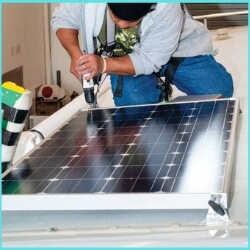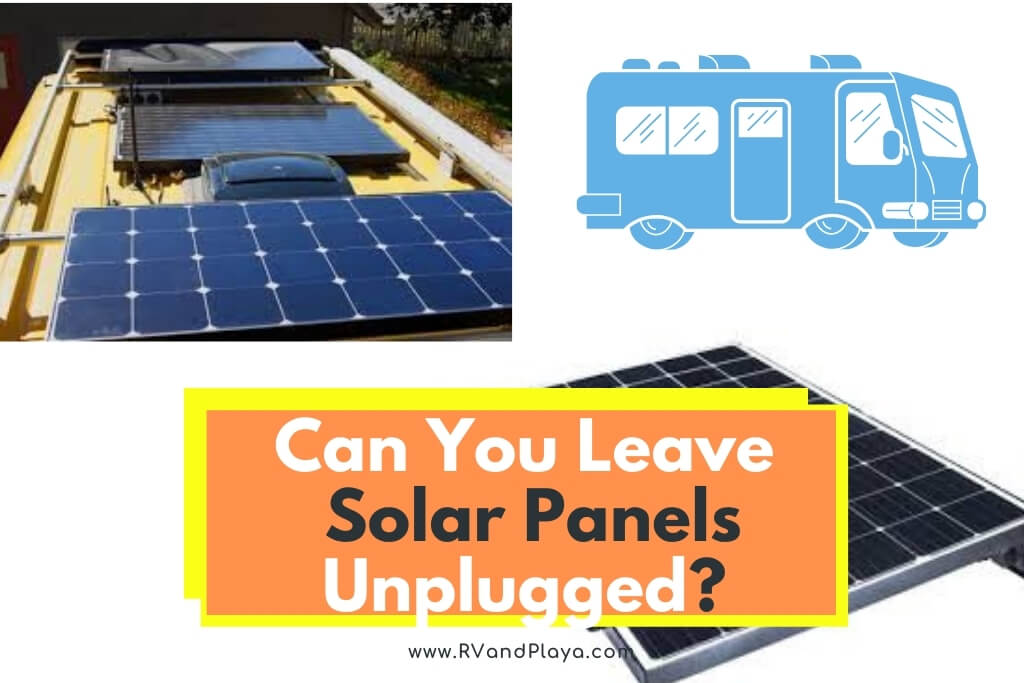Solar panels are meant to draw energy from the sun, but many ask questions regarding the internal power sources as well, and if they need to be plugged in all the time.
Solar energy has become increasingly popular as we all seek out more sustainable living, but there is more to it than meets the eye.
Can you leave solar panels unplugged or disconnected? Yes, you can leave solar panels unplugged or unconnected without causing any damage or issues to the system. Solar batteries should retain power, even when unplugged if they are not being used, and will be ready for the next use.
But when you unplug the panels, you will notice a difference in the temperature and power of the system.
Understanding how the batteries operate and where the panels are drawing their energy from are key elements.
These panels are meant to create a more sustainable environment and a cheaper electric bill, so you want to make sure you are getting the most out of them by treating them properly and understanding how they function.
Table of Contents
Understanding Where Solar Panel Power Comes From
To understand what happens when you unplug solar panels, you should also understand each of the pieces and how they work.
While solar panels are intended to harness natural energy and cut down on electric use, there are still components that require electricity to create a charge.
The main components of solar panels are:
- Racking
- Inverters
- Batteries
- Solar Regulator
- Charge Controllers
- Panels
The electric current naturally travels through the panels from the sun, because of their silicon composition.
But those panels on their own won’t be what produces energy in your home.
The combination of these components with the energy from the sun is what creates power.
Related reading: This Is What Happens to Solar Power When Batteries Are Full? – (FACTS)
The batteries are what need to be charged for these pieces to all come together and function. Batteries are fed natural energy through the solar panels creating power.
The solar regulator is the piece that ensures the batteries are receiving the proper amount of energy to power the system.
Some units will require the inverter to connect to an AC power source.
In those units, you will need to use the wall outlet to garner energy for the batteries to charge and power the unit.

This still results in lower energy costs because the panels are offering power as well, requiring less voltage from the wall.
So, when you unplug those units, you are removing the main power source for the batteries. If they are fully charged, the panels will still operate as normal.
You will not need to worry about plugging it back in until you are running low on the power again.
Disconnecting Your Solar Panels
While disconnecting the solar panels is safe, you do need to make sure you follow guidelines when you disconnect them to be sure you are the panels are safe.
You should never disconnect panels while the sun is directly on the panels. Because there is power being drawn from the sun, it is always safest to try and disconnect the panels at night.
Just like with any piece of electrical equipment, the higher the voltage the more care you should take when doing anything with them.
So, depending on your unit and its size and voltage, you will want to take extra care when disconnecting or connecting the panels.
This is why dealing with the connection is always going to be safest when there is no direct sunlight on the panels.
Fun Fact: According to Semper Solaris, solar panels produce about 10 kilowatts of energy per square foot. So, the size of your home and your energy needs will determine the size of the system you purchase.
How to Safely Disconnect Solar Panels
With any size of solar panels, safety should always be considered first. But the larger the voltage gets, the more careful you should be.
These are some basic guidelines that will help keep you and the solar panels safe.
- Wait for nightfall, or a fully overcast early morning or late evening. You never want to disconnect or do any maintenance on solar panels when there is direct sunlight on the panels.
- Have the proper safety equipment. A pair of safety glasses and gloves will help as an extra safety precaution in case of sparks or shocks.
- Ensure the voltage is measuring zero. You can use a voltage meter for this step, making sure no currents are running through the system.
- Disconnect the wires that run from the solar power system to the solar panels. Depending on the unit, you will typically need a screwdriver or a socket wrench to complete this step.
- Cover the wires as an extra precaution. Once the wires are disconnected it’s wise to place electrical tape or a rubber terminal over the ends. This way, if the wires become live, they will not be of any danger. You can also do this step over the solar panel wire connect terminals.
Tip: A handful of larger systems utilize a disconnect switch. Check your system for this feature, and always switch it off before doing any connecting or disconnecting for added safety.
How Long is it Okay to Leave Solar Panels Unplugged?
Just because it is safe to unplug your solar panels doesn’t necessarily mean they should remain to unplug for extended periods.
In the long term, keeping them unplugged will not be good for the longevity of the system.
When solar panels are left out in the sun without a load, they can become damaged because there is nowhere for the power to go and they can overload the system without a regulator working.
Read also: What Does Solar Ready or Prep on A Camper Mean?
This shouldn’t be an issue for a few hours up to a few days. But when you get past that point, you are taking a gamble with the safety of the solar panels.
Most homeowners will want to keep their panels up and running all the time to capitalize on energy reduction. But there may be a few different reasons why the system would need to be unplugged for a while.
Maintenance
When you are doing any sort of routine maintenance or cleaning, you may want to disconnect the system for safety purposes.
Installations
When you add additional panels to a current system, you will need to disconnect the current panels to safely add and integrate the new panels.
Short Term Shut Down
When people go out of town for a short two- or three-day trip, sometimes they will want to shut down their solar panel system.
If there is no need to regulate heat or air while they are gone, and there is no electric need at the home during those days, it is common for people to unplug completely, to save a little additional energy.
Any of these would be completely acceptable for disconnecting, as they are short term needs.
But be careful not to let them stay unplugged for too long, otherwise they can be susceptible to damage from the current not being able to be regulated.
Read: How Many Batteries Do I Need for My Inverter? [Incl. 8 Examples]
Unplugging Solar Panels
Unplugging solar panels is completely safe for you and your panels as long as you follow safety guidelines and understand how your specific system operates.
Always check user manuals and safety protocols for your unit before attempting any disconnecting or connecting of the panels.
And if you are unsure, reach out to the manufacturer or a local professional who does installations.
The solar panels can be unplugged for short periods, as needed. Be sure to safely disconnect and reconnect the panels, while also having a thorough knowledge of how the system operates.
Recent Posts
Is Toyota Remote Connect Free? (Subscription, Services Plans)
Does Toyota Remote Connect have an included trial? It used to be the case that, when you bought a new car, you made one straightforward payment and that was it. Now, it feels like there are...
Toyota Safety Connect: What It Is And Why You Need It? Whether you’re buying a new Toyota or you’ve had one for a while you will have been given the hard sell on their Connected Services but do...

